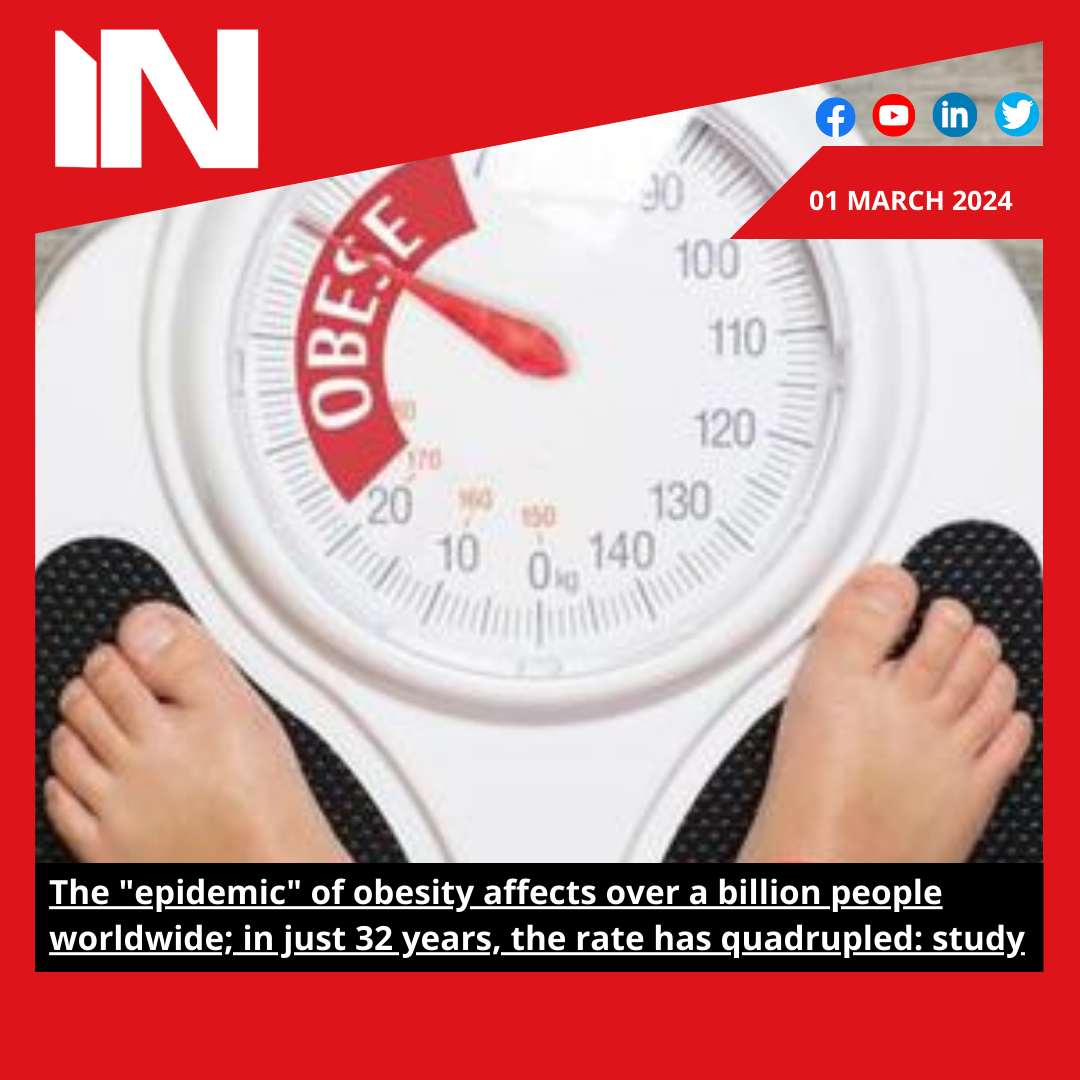According to a study, more than one billion individuals globally suffer from obesity, exceeding previous estimates, with rates rising among kids and teenagers.
A research published in the Lancet medical magazine states that over one billion individuals worldwide suffer from obesity, and that the figure has more than tripled since 1990. The study conducted in collaboration with the World Health Organization indicates that the “epidemic” is mostly affecting less developed nations, with children and adolescents seeing a higher growth in the rate than adults.
According to the report, which was published in advance of World Obesity Day on March 4, there were over 226 million obese adults, adolescents, and children worldwide in 1990. In 2022, the number had increased to 1,038 million. The WHO’s head of nutrition for health, Francesco Branca, stated that the count of those surpassing one billion has reached “much earlier than we have anticipated”.
Physicians were aware that the number of obese people was rapidly increasing, but the symbolic number was originally anticipated in 2030. To get at the estimations, researchers examined the height and weight data of over 220 million individuals across more than 190.
nations, according to a report published in Lancet. In 2022, 374 million men and 504 million women were predicted to be obese. According to the report, the rate of obesity has more than quadrupled for women (18.5 percent) and almost tripled for males (14 percent) since 1990.
The study estimates that 159 million children and adolescents—up from roughly 31 million in 1990—were obese in 2022. A higher chance of dying from heart disease, diabetes, and several malignancies is associated with the chronic and complex illness. During the coronavirus epidemic, being overweight raised one’s risk of dying.
The Caribbean, Middle East, North Africa, Polynesia, and Micronesia have all suffered significantly from the surge. “These countries now have higher obesity rates than many high-income industrialised countries.
especially those in Europe,” according to the research. Branca noted the rapid changes in lifestyle that are occurring in low- and middle-income nations. “In the past we have tended to think of obesity as a problem of the rich, now a problem of the world,” she added.
A recent study reveals a shocking “epidemic” of obesity, affecting over a billion people worldwide. The research highlights the alarming rise of obesity, with rates quadrupling over the past 32 years. In this study, data from multiple countries indicate that the global prevalence of obesity has become a major public health crisis, with both developed and developing nations seeing a rapid increase in cases.
the modern lifestyle, characterized by sedentary behavior, increased consumption of processed foods, and environmental factors, has contributed significantly rising health issue. As a result, the global healthcare system is under increasing strain, with obesity-related diseases such as diabetes, heart disease, and certain cancers becoming more common.
Experts stress the importance of proactive measures to combat obesity, including healthier food choices, regular physical activity, and increased awareness about its long-term consequences. Public health campaigns and policy interventions are crucial in addressing this growing concern, with governments encouraged to take immediate action.
In light of the study’s findings, it is clear that a global effort is required to curb the rise of obesity and promote healthier lifestyles for future generations. Only through collective action can we hope to reverse this concerning trend and prevent the severe impact obesity has on public health.
#ObesityEpidemic #GlobalHealth #ObesityCrisis #HealthAwareness #HealthyLiving #PublicHealth #ObesityPrevention #FitnessGoals #HealthImpact #EatHealthy #ActiveLifestyle
Group Media Publications
Entertainment News Platforms – anyflix.in
Construction Infrastructure and Mining News Platform – https://cimreviews.com/
General News Platform – https://ihtlive.com/
Podcast Platforms – https://anyfm.in

%20(2).jpg)
%20(2).jpg) Celebrity Lifestyle1 month ago
Celebrity Lifestyle1 month ago
 Celebrity News1 month ago
Celebrity News1 month ago
 Trending1 month ago
Trending1 month ago
 Web Series1 month ago
Web Series1 month ago.png)
.png) Tollywood1 month ago
Tollywood1 month ago
 Trending1 month ago
Trending1 month ago%20(1).jpg)
%20(1).jpg) Hailee Steinfeld1 month ago
Hailee Steinfeld1 month ago.jpg)
.jpg) Hollywood4 weeks ago
Hollywood4 weeks ago





.jpg)
.jpg)
.jpg)
.jpg)

.jpg)







